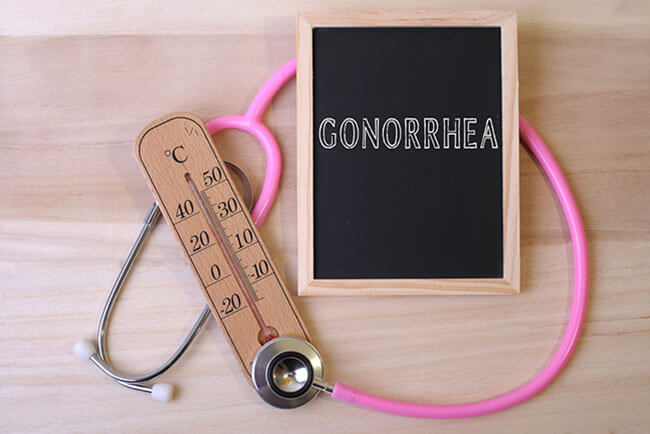One of the most common STDs in the US, gonorrhea can cause numerous complications if left undetected and untreated. The usual complications include skin pustules, meningitis, septic arthritis, and endocarditis.
In men, it can cause inflammation of the urethra, prostate gland, and epididymis. Men with gonorrhea also have an increased risk of developing prostate cancer. In women, it usually causes pelvic inflammatory disease, inflammation of the tissue surrounding the liver, chorioamnionitis, septic abortion, infertility, and neonatal blindness from conjunctivitis.
Although it can cause any number of severe symptoms in its later stages, gonorrhea is very easily treated. However, it is of paramount importance to receive proper treatment as soon as possible in order to avoid any long-term health problems. This means you should get tested for gonorrhea as soon as possible after potential exposure.

How Is Gonorrhea Treated?
If you test positive for gonorrhea, your doctor will most likely prescribe the following antibiotics:
- Ceftriaxone – Given as a one-time injection (the dose is usually 250 mg).
- Azithromycin (Zmax, Zithromax) or Doxycycline (Vibramycin, Monodox) – These antibiotics are taken by mouth and one dose is usually enough. You might need to take them for an entire week or more depending on the severity of the infection.
If you are allergic to Ceftriaxone, your doctor will probably combine oral Azithromycin with injectable Gentamicin or oral Gemifloxacin (Factive).
It is very important that you inform your doctor about any standing drug allergies, especially to antibiotics.
Gonorrhea After Treatment
After you finish treatment, your sexual partner(s) and you should wait 7 days to resume sexual activity. Your doctor can also advise follow-up testing just to make sure the infection has cleared.
Unfortunately, some strains of gonorrhea bacteria do not respond to antibiotic treatment. This is called “antibiotic resistance.” If your symptoms continue even after the treatment, you should visit your doctor again for a longer course of alternative antibiotics.
